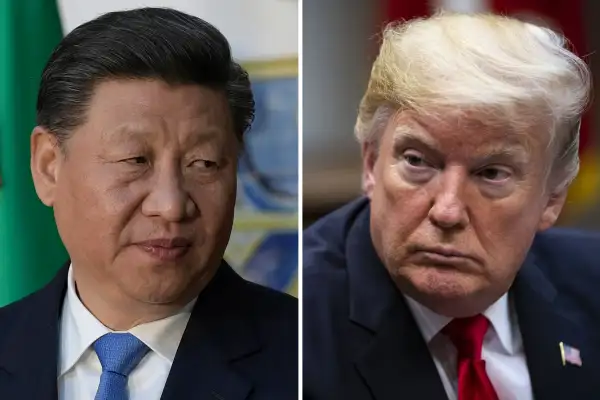How Trump's Trade War With China Will Affect Your Investments in 2019, According to Market Pros
Money is not a client of any investment adviser featured on this page. The information provided on this page is for educational purposes only and is not intended as investment advice. Money does not offer advisory services.

With the U.S. economy increasingly global, world politics are always a concern for investors. But in the past several years, amid rising populism in both the U.S. and Europe, those worries have loomed still larger. Can the U.S. and China solve their trade disputes without harming their economies? What will the U.K. look like after Brexit?
To answer these questions and more, we spoke to five market pros:
"Economic Backdrop Remains Positive"
Saira Malik, managing director and head of global equities at Nuveen
"U.S. tariffs on Chinese imports could turn into a real problem, especially if the Trump administration hikes the rate to 25% from 10% in early 2019, as it has threatened to do. That would push U.S. consumer prices up, leading to inflation, which in turn would either cause the Federal Reserve to raise rates faster than expected, bringing about a classic end to this economic cycle, or lead companies and consumers to cut back on spending. Right now, however, that worst-case scenario seems unlikely. The economic backdrop remains positive, and the impact of tariffs is more a fear than a reality."
"Short-Term Market Movements"
Mohamed El-Erian, chief economic advisor at Allianz
"The U.S.-China trade dispute may cause short-term market movements, but other than the possibility of a full-blown global trade war—which I place at about one in four—I don't see it as a major concern, to tell you the truth. If you look at specific markets, like oil in particular, then of course geopolitics matter a lot more. But if you're talking about the stock market in general, it will have much more sector-by-sector effects than overall. If trade disputes do heat up, that will have more of an overall impact."
"There Are Only Losers From Trade Wars"
Nicholas Sargen, senior vice president, chief economist, and senior investment advisor at Fort Washington Investment Advisors
"The recent trade dispute is dampening China's economy, and that weakness is spilling over into other emerging markets that supply raw materials to China. A big worry is that these problems will continue to spread. History suggests that there are only losers from trade wars. Slowing global economic growth will eventually catch up with the U.S., especially as the benefits from tax cuts and deregulation start to fade. The U.S. trade deficit will also continue to widen, as a strong dollar slows U.S. exports. The dollar will remain strong because of relatively high U.S. interest rates, which help attract more foreign investment. And that strong dollar will hurt U.S. exporters by making American goods more expensive abroad, even as it helps consumers by making foreign goods cheaper for them to buy."
"More Volatility"
Kate Warne, principal and investment strategist at Edward Jones (edited)
While world affairs will have a bigger impact and lead to more volatility in 2019, that won't necessarily bring an all-out stop to economic growth. It's not the brightest year on the horizon, so as the benefits from corporate tax cuts fade and U.S. economic growth slows, investors could start to worry a lot more about what's happening abroad. But while we should see lower returns and a more tumultuous market, we probably won't endure a full-blown recession.
"Populism Is the Order of the Day"
Matthew McLennan, head of global value team and portfolio manager at First Eagle Investment Management
"We've already seen some trade-fear ripples, but increased volatility in general will make it harder to judge whether additional tariffs are really disrupting global supply chains. After having gone through nearly a generation of globalization, we're now clearly in a world where countries are looking out for their own interests, where populism is the order of the day, and where budget discipline is at risk, with governments spending freely. Usually at the peak of a cycle, governments try to balance budgets, but right now that's not happening—which means we'll have less of a cushion when the next economic downturn comes."